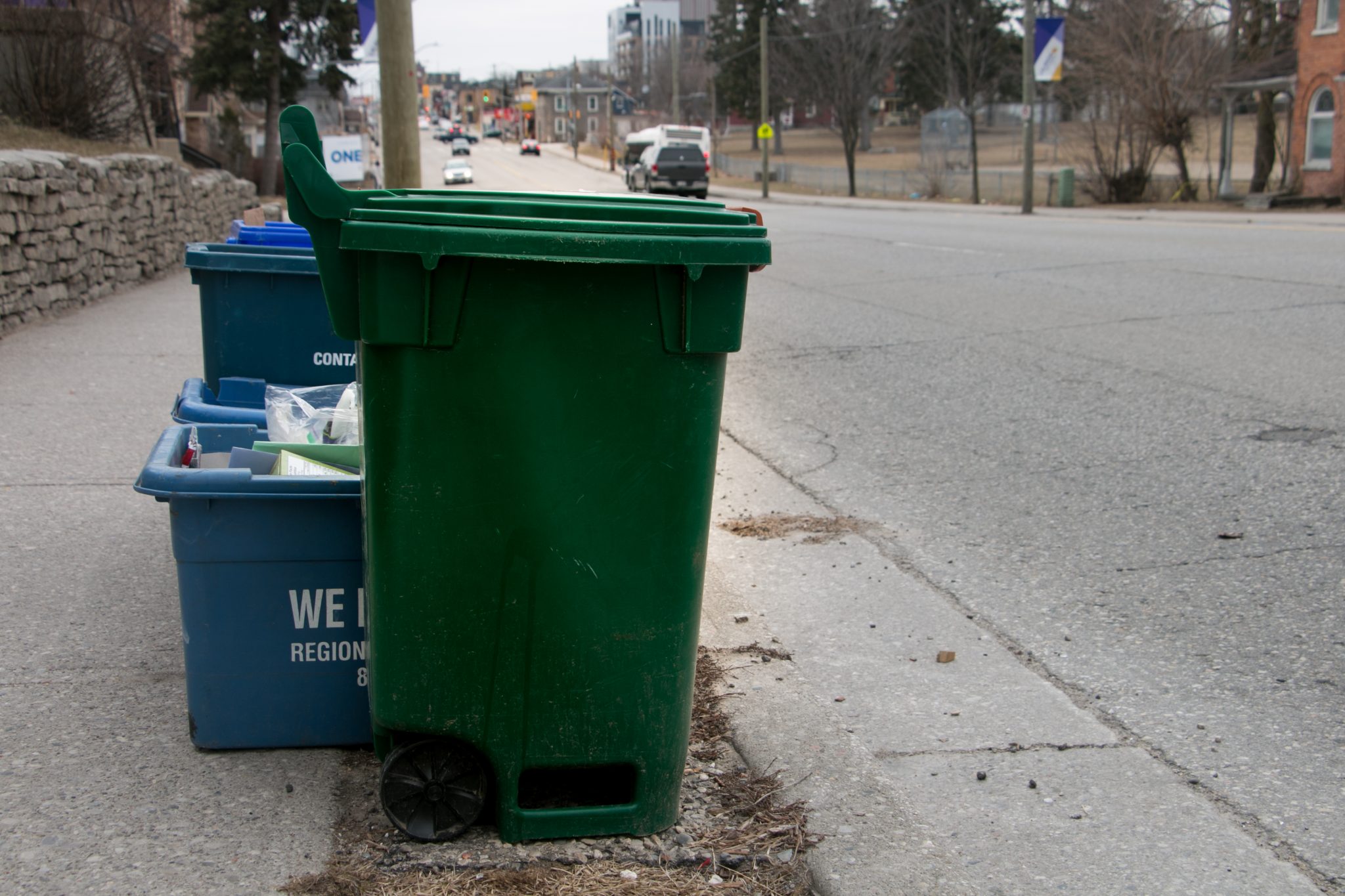Given all the fuss to get people to use the green bin, you might wonder why you’re throwing your apple core and kitty litter into the garbage at your apartment building or condo. It becomes frustrating if you’re interested in adopting a zero waste lifestyle or have recently moved out of your single family home to enjoy your retirement in a condo.
You may then be one of the people trying to figure out how to get organic waste collection at your building or complex, only to find out that it’s next to impossible.
How could this possibly be? We know that our local landfill is fighting hard to avoid reaching capacity that is anticipated in 20 years. We also know that organic waste creates methane which is a particularly nasty greenhouse gas. And we know that time is running out to avoid the worst of the impact of climate change, which is irreversible.
So why doesn’t the Region of Waterloo collect organic waste from multiple unit residential sites? It’s own official plan limits urban growth and calls for intensification.
The answer is simple. The Region doesn’t have to collect organic waste from these properties.
While that may not make sense, it’s perfectly legitimate. The Region of Waterloo is only required by the province to collect garbage from single family homes and small multi-unit properties with six units or less. Anything larger is considered a business and is served by a private waste collection firm.
Still you’d think that one resident or a group of residents who care about living sustainably could at least make a difference in their own building or complex. Private firms offer the service but it is priced dramatically higher than collecting the garbage and taking it to a private landfill — possibly even one they own. And the Region of Waterloo’s tiny pilot program isn’t accepting more participants.
That makes it an expensive option for even the most environmentally-friendly condos or property owners. On top of that, it is a risky option since only a small minority is likely to participate. Quality of waste is an issue, too, if people don’t understand what is compostable.
So all the local people whose home is in one of the large apartment buildings or condos that are popping up are forced to throw their organic waste into the garbage which is then trucked outside Waterloo Region — racking up greenhouse gas emissions to transport it and as it decomposes.
But you may be thinking, why does the Region of Waterloo collect my building’s recycling? I’m sure it was due to public pressure to offer the service. It probably helped too that materials collected for recycling can be sold whereas there is a cost for disposing organic waste.
To their credit, the Region of Waterloo does plan to initiate a study next year about offering organic waste collection to all homes in Waterloo Region. Still, a report to Regional Council isn’t expected for a couple years with implementation still further down the road.
Public pressure is the best way to get this service offered sooner at your building or complex. Start with your landlord, property manager or condo board. Even better, make sure provincial politicians looking for your vote in June know you want the province to require this service. Then in the fall, let your regional council candidates know that you want the Region to provide you with organic waste collection as soon as possible.
And in the meantime, perhaps a grassroots initiative can provide a solution.




Leave a Reply